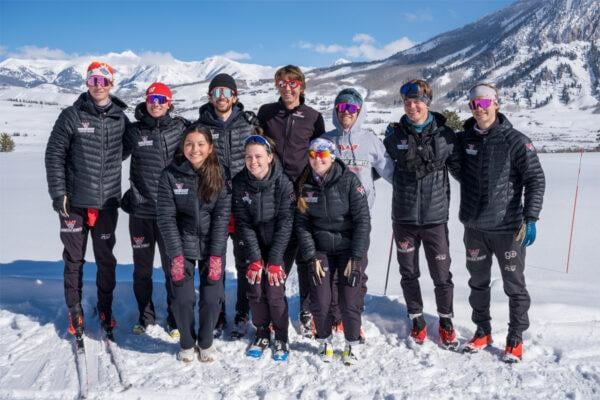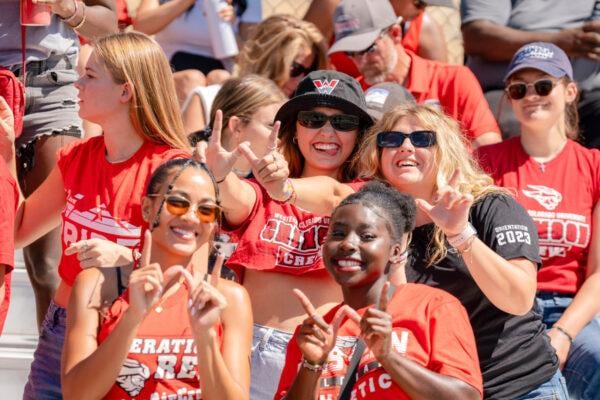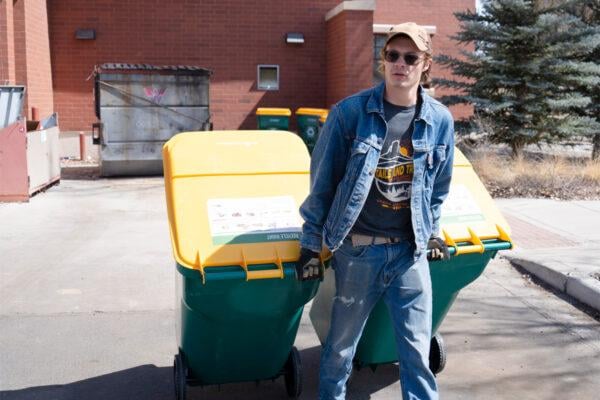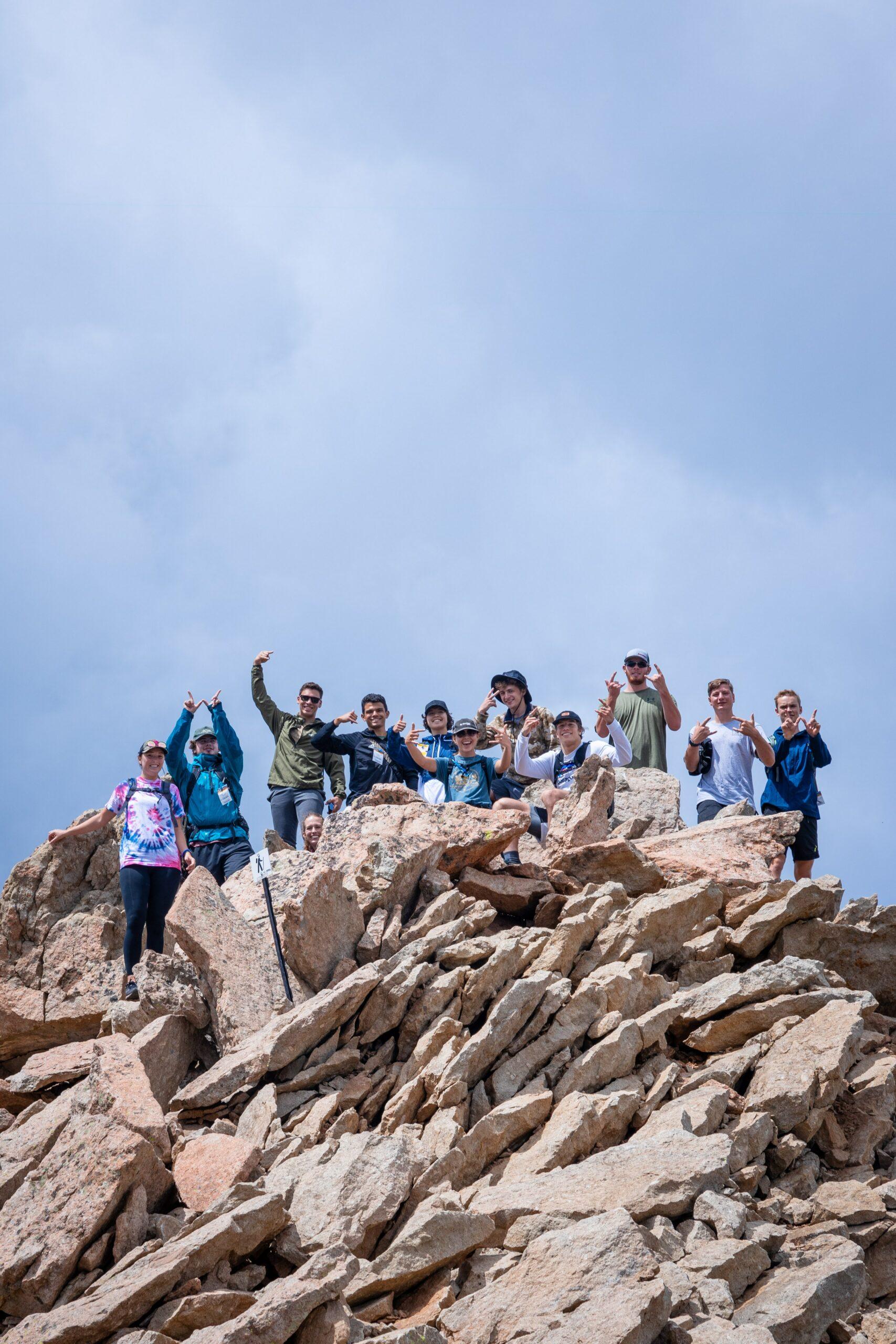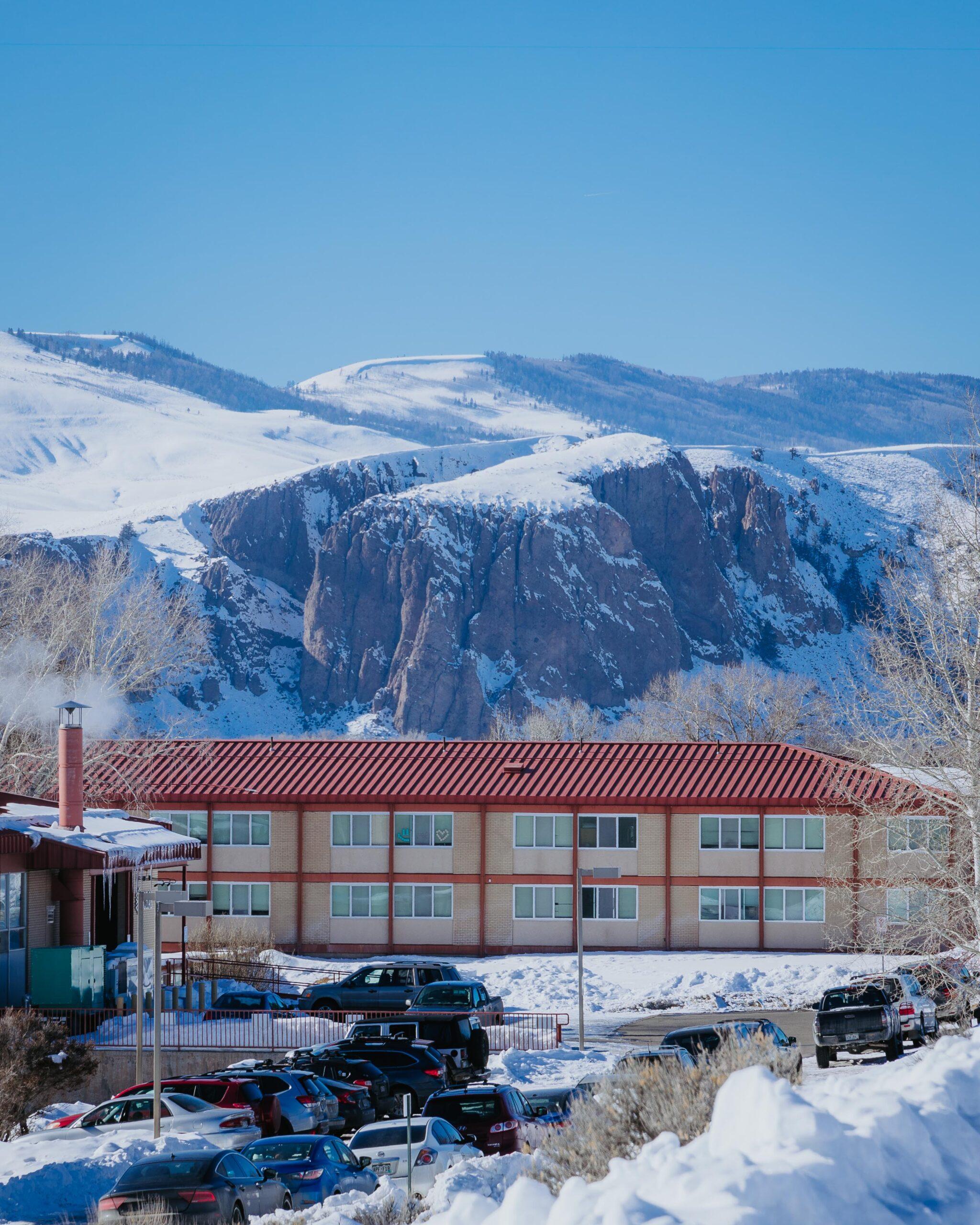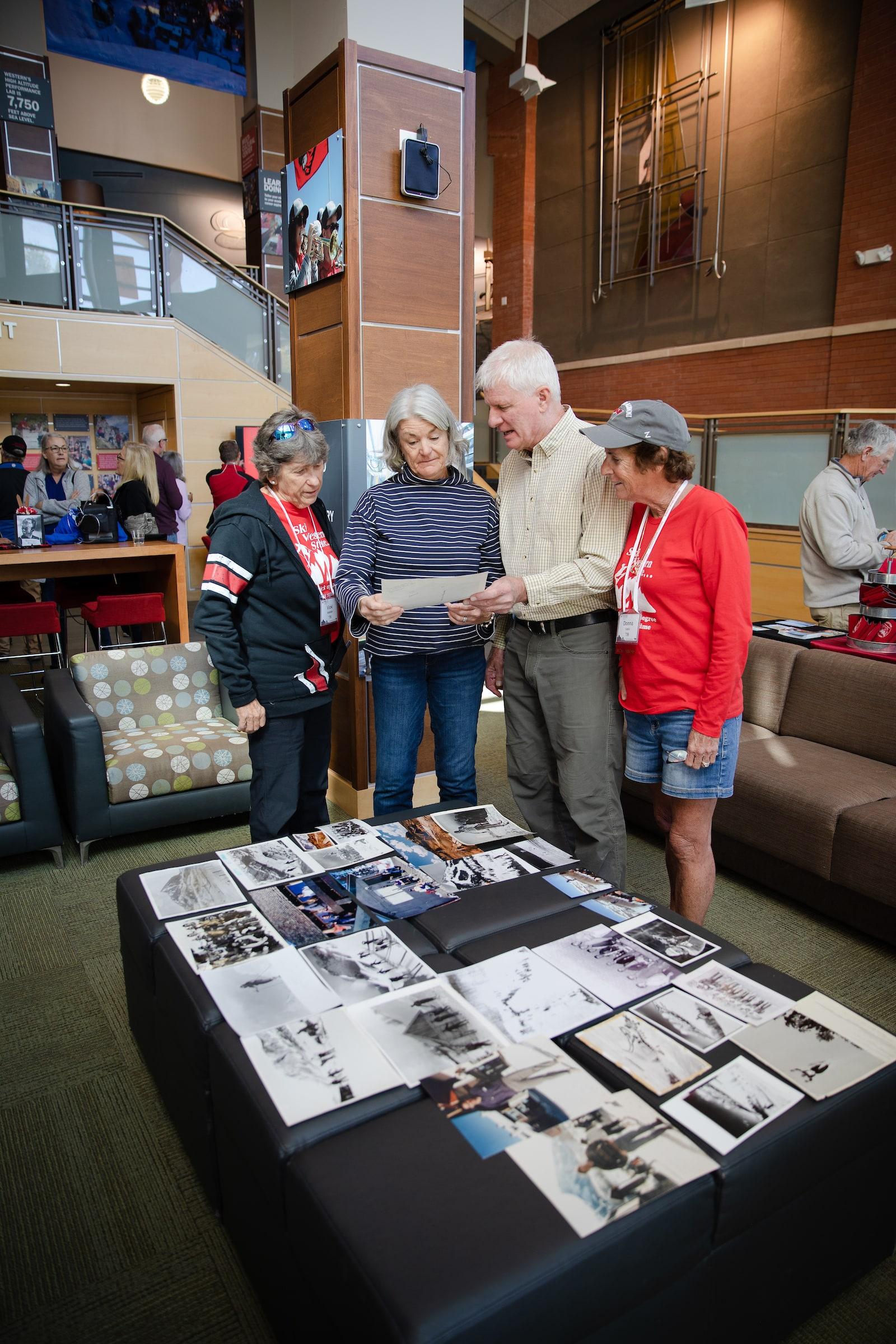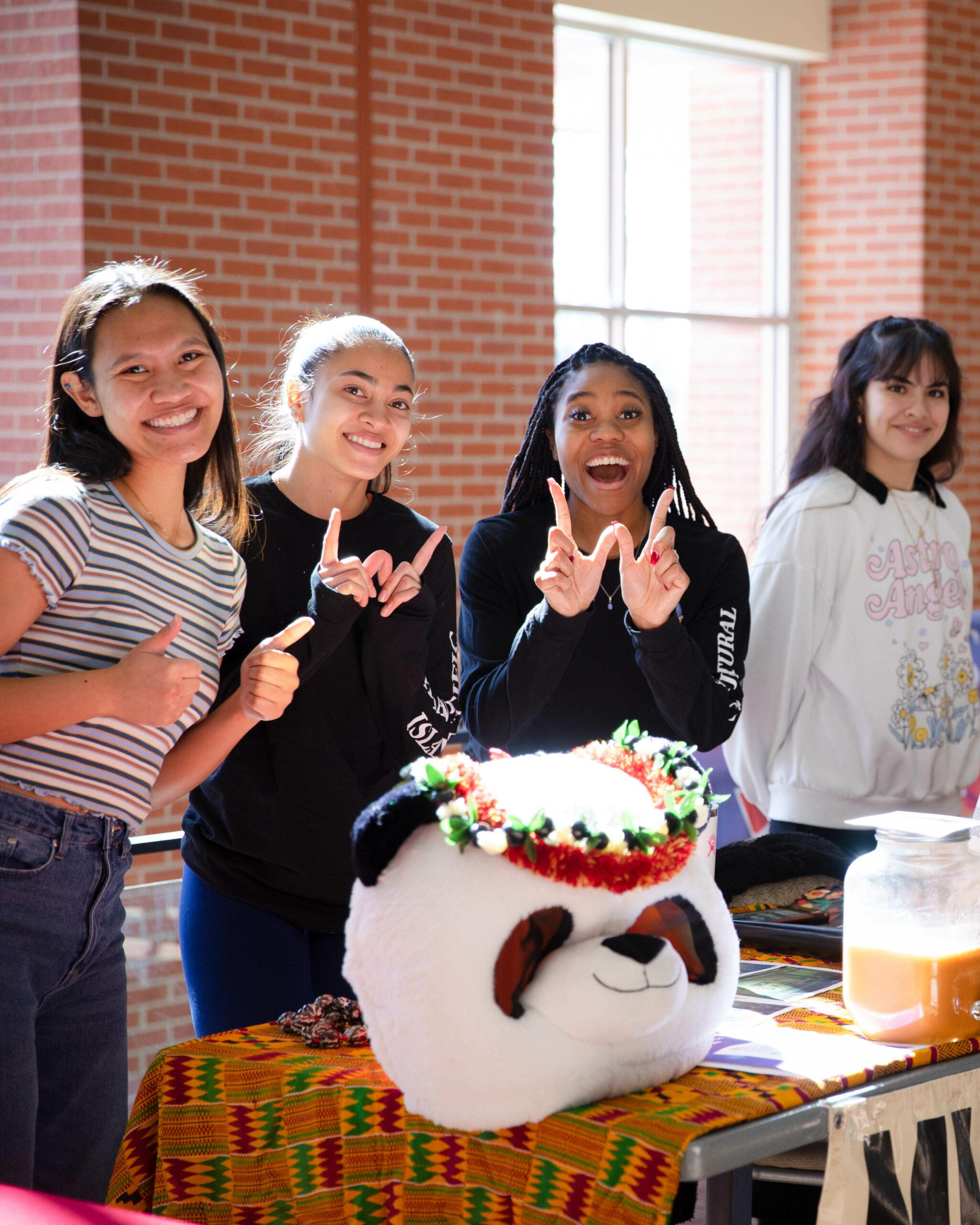His tenure at Western began in 1962 at the age of 25. Also a legendary running coach, Vandenbusche turned the Mountaineers cross country and track and field programs into national powerhouses from 1971 to 2007, and he is cherished to this day by the hundreds of athletes who ran under him.
Raised in the Upper Peninsula of Michigan, Vandenbusche knew “not one thing about Colorado, not one thing about the mountains and certainly not anything about Gunnison” before arriving at Western. Fifty-five years later, he claims that he doesn’t feel much different than when he was 25. His voice still booms, and his words carry wisdom.
Why do you love to teach?
Well, I think I have something to offer the students. I’m very disciplined, very strict in the class and not only am I teaching them subject, I think I’m also teaching them that A) they have to show up, B) they have to show up on time, C) they have to do their best. My mother and father raised me to make the world a little better place than when you stared. And that’s what I’ve tried to do.
Who were your mentors as a young professor?
My No. 1 mentor was D.H. Cummins, who was the interim president and also on the history faculty. He told me how to dress and how to behave and how to function as a teacher. Even today when I teach, I wear a tie and slacks and a short-sleeve shirt. That’s the way I started at Western and that’s the way I’m going to finish at Western.
Have you ever thought about leaving?
In 1967 I had the opportunity to be the head of a department at a college in Oklahoma. I remember talking to the guy on the phone and said if there was any possibility of me coming I’d have to be a full prof. The guy said that it wasn’t in the job description, but he’d talk to the president and call me the next day. Worst 24 hours of my life because I just … I agonize and I said there is no way I can be in Oklahoma if it snows 12 inches in the Colorado Rockies … that’s the last time I even entertained the possibility of leaving.
What kept alive your passion as a coach for so long?
I loved the competition. I still love the competition. I crave the competition. In the classroom I want to be the best, in coaching I want to be the best, when I ran a race on the Fourth of July in Crested Butte I want to do my best. I’ve always had the pursuit of excellence.
I didn’t know anything about coaching when I started, didn’t know much about track and field or cross country, but I went to the top university of all to learn—and that was the University of Hard Knocks.
What’s your favorite memory from coaching?
I always thought that when the kids graduated was probably my best memory because you eventually have to leave athletics, you know, competitively. My philosophy was that when they got out, if they ran for me, they were going to be able to get any job they wanted because I was much harder on them than any employer could ever be.
What makes the Gunnison Valley so special?
It’s out of the way a little bit. It’s the perfect elevation for distance running at 7,703 feet. It’s very beautiful with the Elk Mountains and all the 14ers around. It’s an area with a ranching and mining history—so it’s a workingman’s area. The Gunnison Country to me is a kind of state of mind more than a place. And by state of mind I mean that here you’re able to do this great mountain biking, this great powder skiing. Everything is right in front of you. I’ve been to the Dolomites and the Alps and it has nothing on the Gunnison Country.
Any parting words?
The great Montreal Canadiens hockey player Maurice Richard, big rival of my Detroit Red Wings, was asked what he wanted his epitaph to be, and he said, “You put on my grave marker that some days were good days and some days were bad days, but there was never any day that I didn’t try my best.” That’s my creed. I have failed at a lot of things in a lot of ways but never, ever from lack of effort. And the other thing, my favorite historical figure is Immanuel Kant, and he wrote a “Critique of Pure Reason” and said that, “There are truths of the heart that are greater than truths of the brain.” And I’ve always followed my heart.
This interview, conducted by Peter Noon, has been edited and condensed for clarity. Photo by Randall Gee

